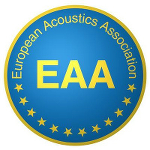Prof. Ing. Felix Kolmer, DrSc. was born on May 3 rd , 1922 in Prague, Vinohrady, into a family of an Italian legionnaire, electrical engineer and later a tradesman of electrical appliances. From a young age he was interested in his father's profession and aspired to become an electrical engineer. However, the crisis of the 1930s and then World War II had a hard impact on his youth. Felix graduated from high school in June 1940, however, due to his Jewish origin, the Protectorate regime at the time prevented him from further education and only allowed him to work manually. He started an apprenticeship as a carpenter but did not manage to complete it.
In November 1941, he was transported as one of the first 342 prisoners that were sent to the concentration camp in Terezín. From here, he was transported twice a week to the nearby Small Fortress concentration camp, where he worked as a carpenter or joiner and it was also where he witnessed inhuman abuse of political prisoners, especially Jews. In October 1944, he was transferred to the Auschwitz II - Birkenau concentration and extermination camp and, as sentenced to death, was to be transported some time later to a subsidiary camp, the sulphur mines, from which there was no return. However, he managed to escape on transportation to a different concentration camp (Friedland - now Mierosow in Poland), where it was possible to survive. During a bombing in May 1945, advancing Soviet troops knocked out the power station that supplied electricity to the 22,000-volt fence of the camp, allowing a large group of prisoners, which included Felix, to escape. He then returned to Prague and was happily reunited with his wife, who had returned from internment in Terezín, where they had previously been married.
After the war, he began attending vocational courses and then studied at the University of Mechanical and Electrical Engineering, which was part of the Czech Technical University in Prague. He graduated in 1949 with a state examination and obtained the degree of Ing. In the same year he joined the Research Institute of Sound, Image and Reproduction Technology (VUZORT) in Prague, where he was employed from 1949 to 1991, first as a researcher, then as head of the acoustic department, later as scientific deputy director, then as director and finally, after retirement, as advisor to the director of the institute.
He defended his dissertation at the Faculty of Electrical Engineering of the Czech Technical University in Prague in 1959 and obtained the degree of CSc. and by defending another dissertation there in 1965 he obtained the degree of DrSc. in physics - acoustics.
In 1959 he helped Prof. Slavik to establish the Acoustical Commission of the Czechoslovak Academy of Sciences and for many years was its chairman. From 1962 he taught at the Faculty of Electrical Engineering of the Czech Technical University in Prague. He was the chairman of the Technical Committee for standardization in Acoustics from its foundation until his retirement and afterwards becoming its honorary member.
Since 1982, when he was appointed professor, he was an external lecturer in Physical and Physiological Acoustics and Room and Building Acoustics at the Film and Television Faculty of the Academy of Performing Arts (FAMU). He was a member of the Commission for Doctoral Studies at HAMU and FAMU. Prof. Kolmer devoted much of his time to activities in social organizations in the field of acoustics. For many years he regularly represented Czechoslovakia at the meetings of Technical Committee 43 Acoustics of the International Organization for Standardization, where he also represented IUPAP (International Union of Pure and Applied Physics). He was one of the founders of the Federation of Acoustical Societies of Europe (FASE) and was its Secretary General for 12 years. In the International Commission of Acoustics (ICA), a subcommittee of IUPAP, he was Director of the Information and Coordination Centre.
He was the author of more than 200 publications and has given more than 190 lectures at universities, scientific institutions and other schools in Europe, North and South America and Australia. He has given some 60 lectures in German schools and societies on Czech-German relations during World War II and on the life of prisoners in concentration camps.
He was a member of the Board of the Czech Acoustical Society and an honorary member of several other Czech societies and foreign acoustical societies in Poland, USA and Argentina. He is the recipient of numerous state awards in Czechoslovakia and the Czech Republic for the development of physics and acoustics and resistance to Nazism. He has also received important awards in Argentina, Belgium and Germany. In his last active years, Prof. Kolmer was mainly involved in activities related to Czech-German relations and compensation for the victims of forced labour. He was a member of the board of the Terezín Initiative, a member of the committee of the Czech Auschwitz Prisoners, the board of the Association of Political Prisoners and Survivors, vice-president of the International Auschwitz Committee and other institutions of similar focus. In the service of the Ministry of Foreign Affairs of the Czech Republic, he participated in negotiations in the USA and in Germany on compensation for victims of slave labour in concentration camps and forced labour and was involved in Czech German relations.
Professor Felix Kolmer passed away on August 5th at the age of 100. We honor his memory.
